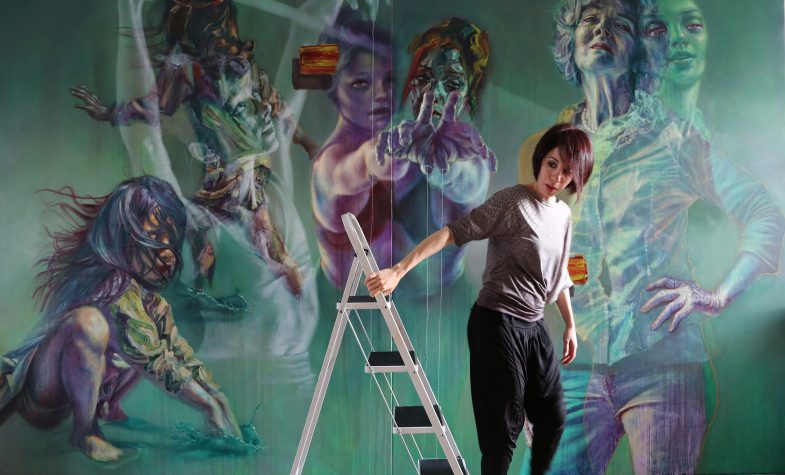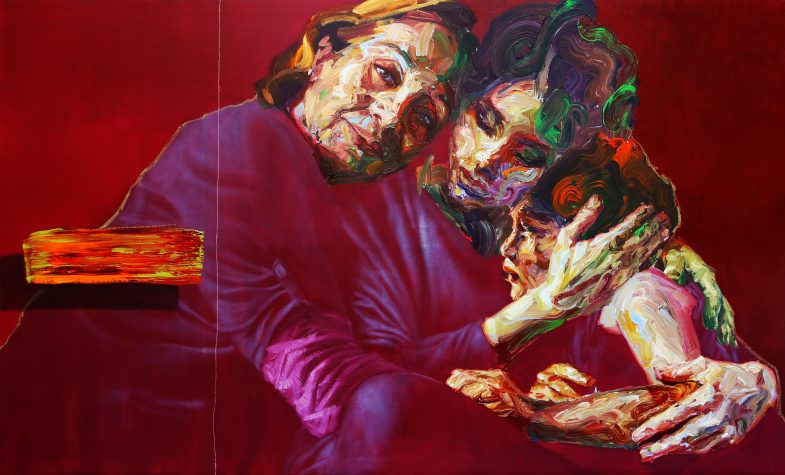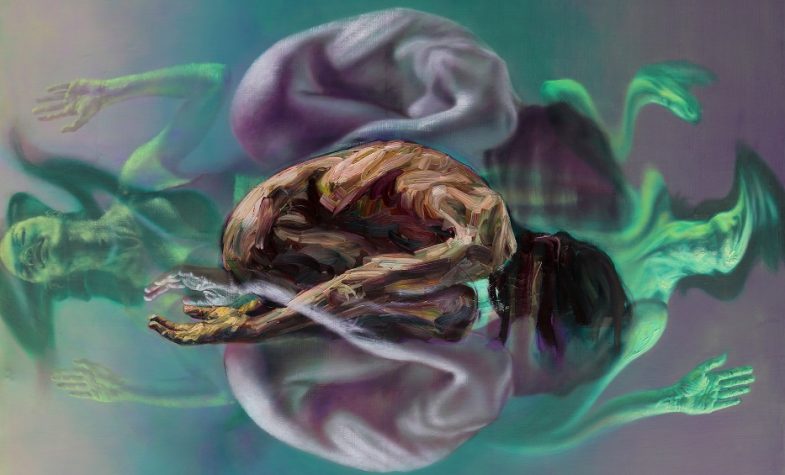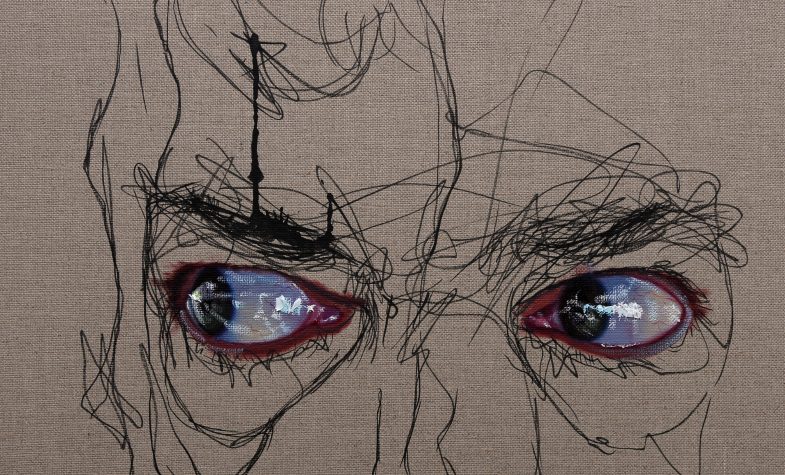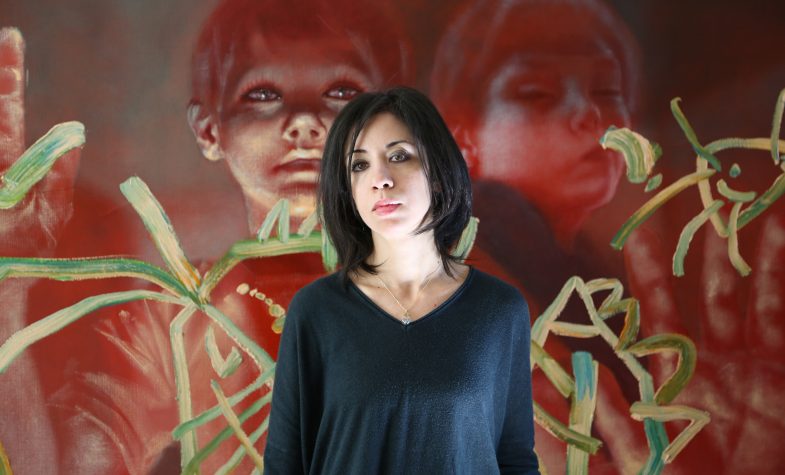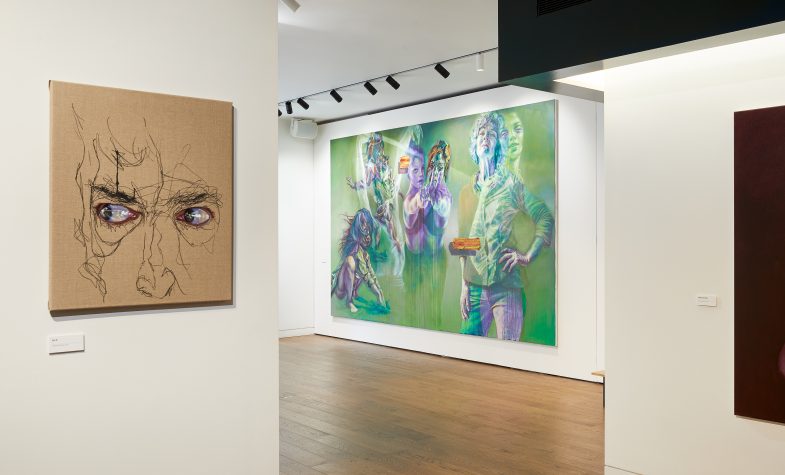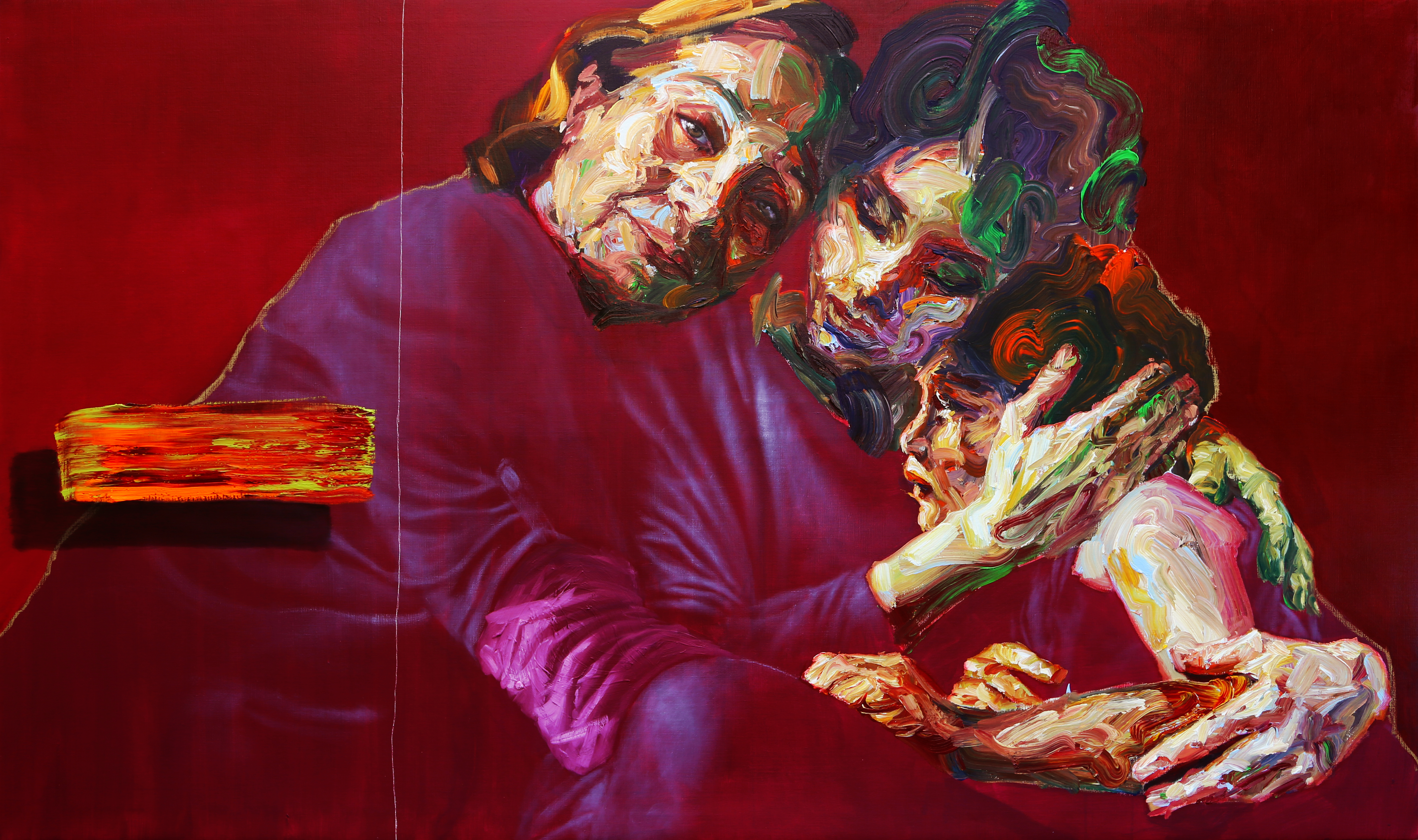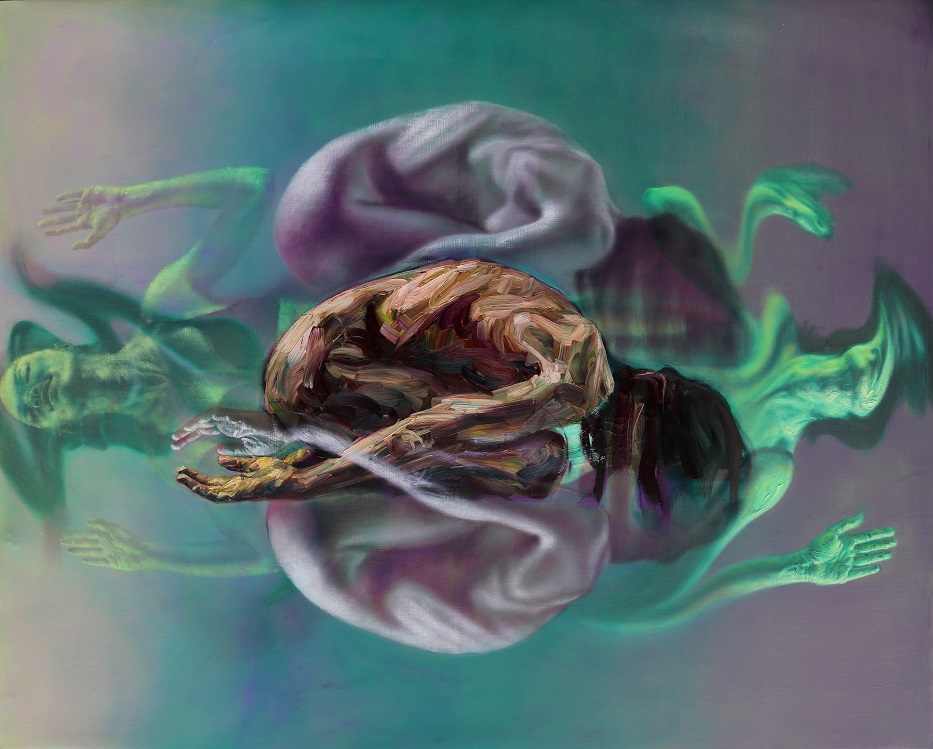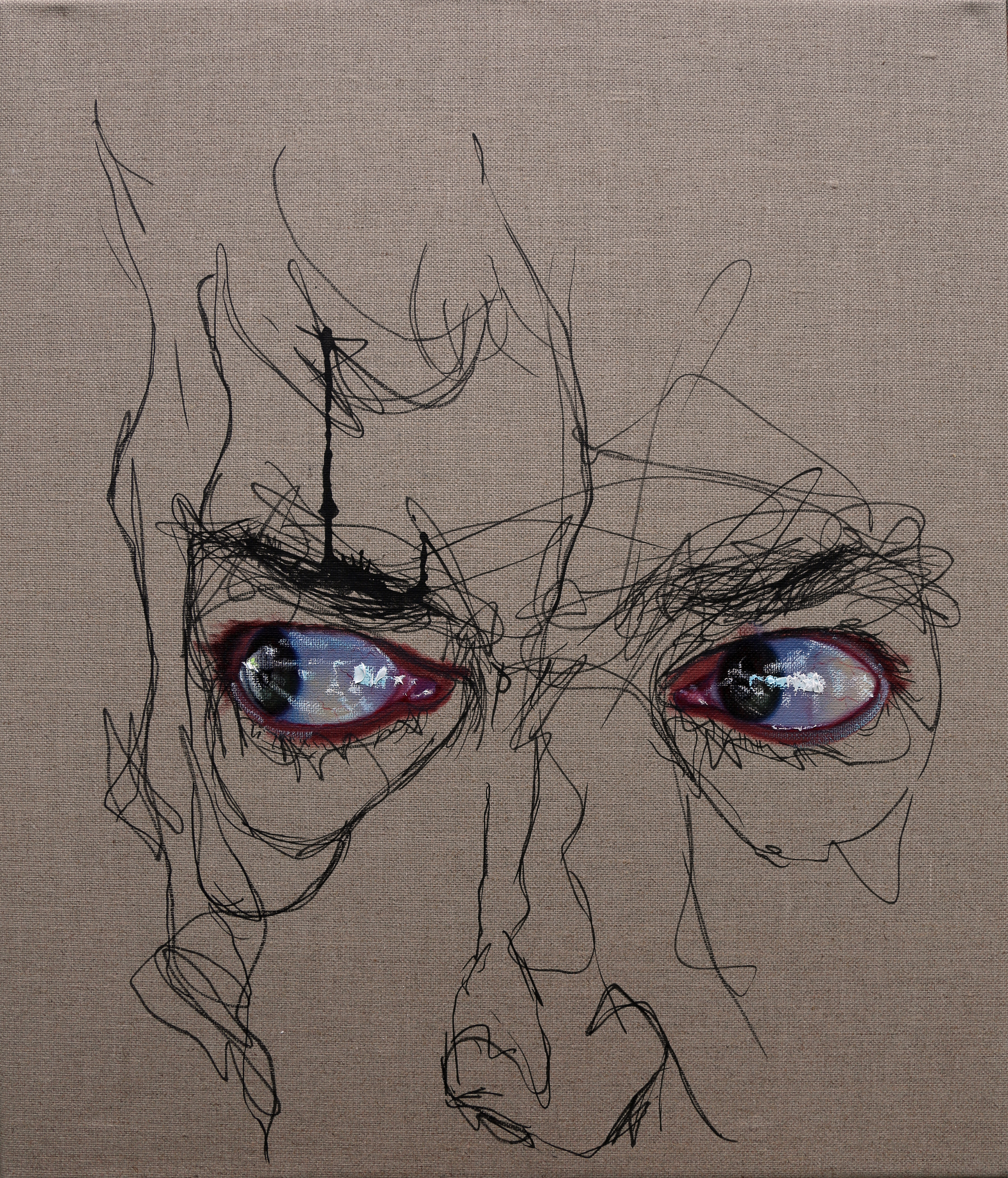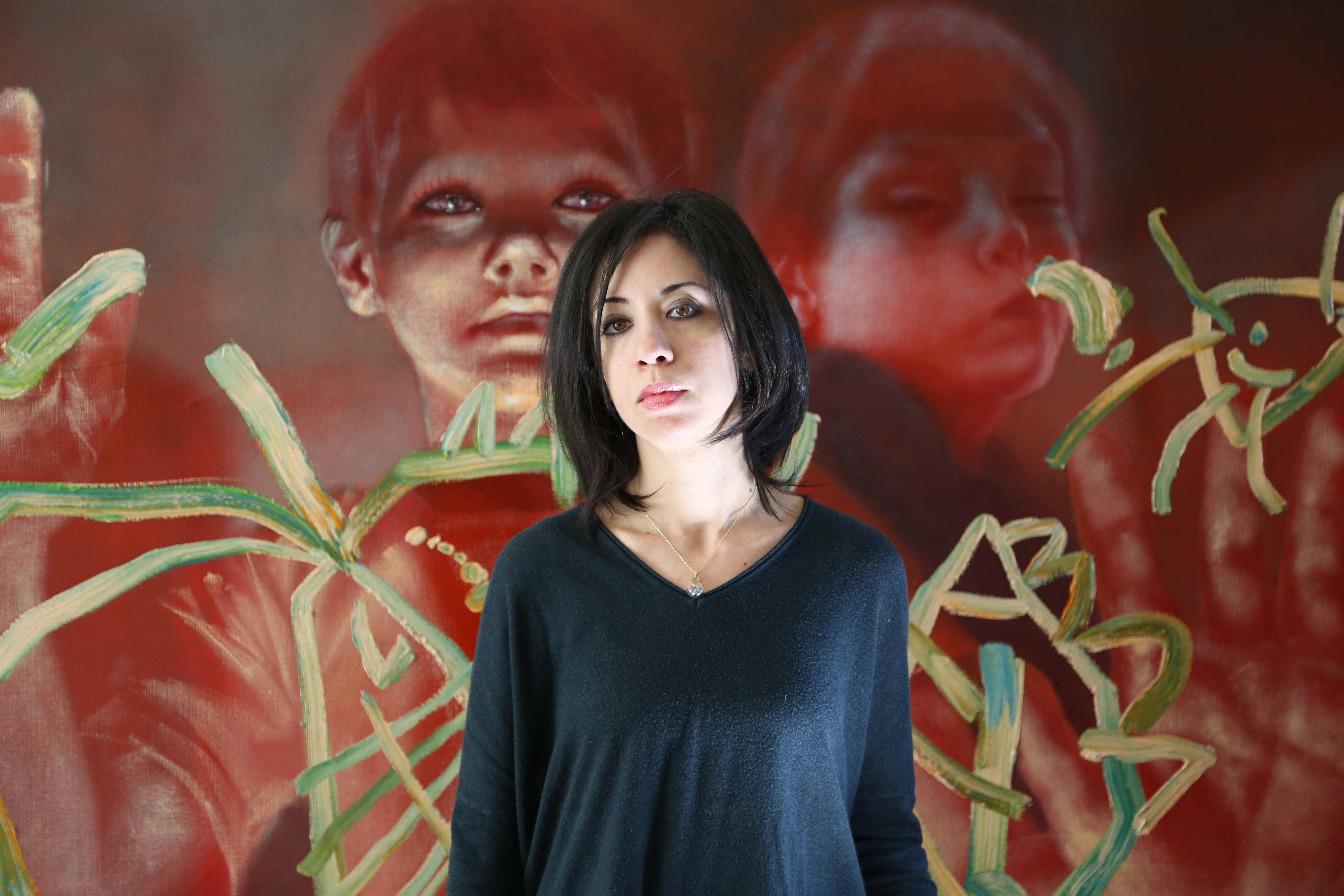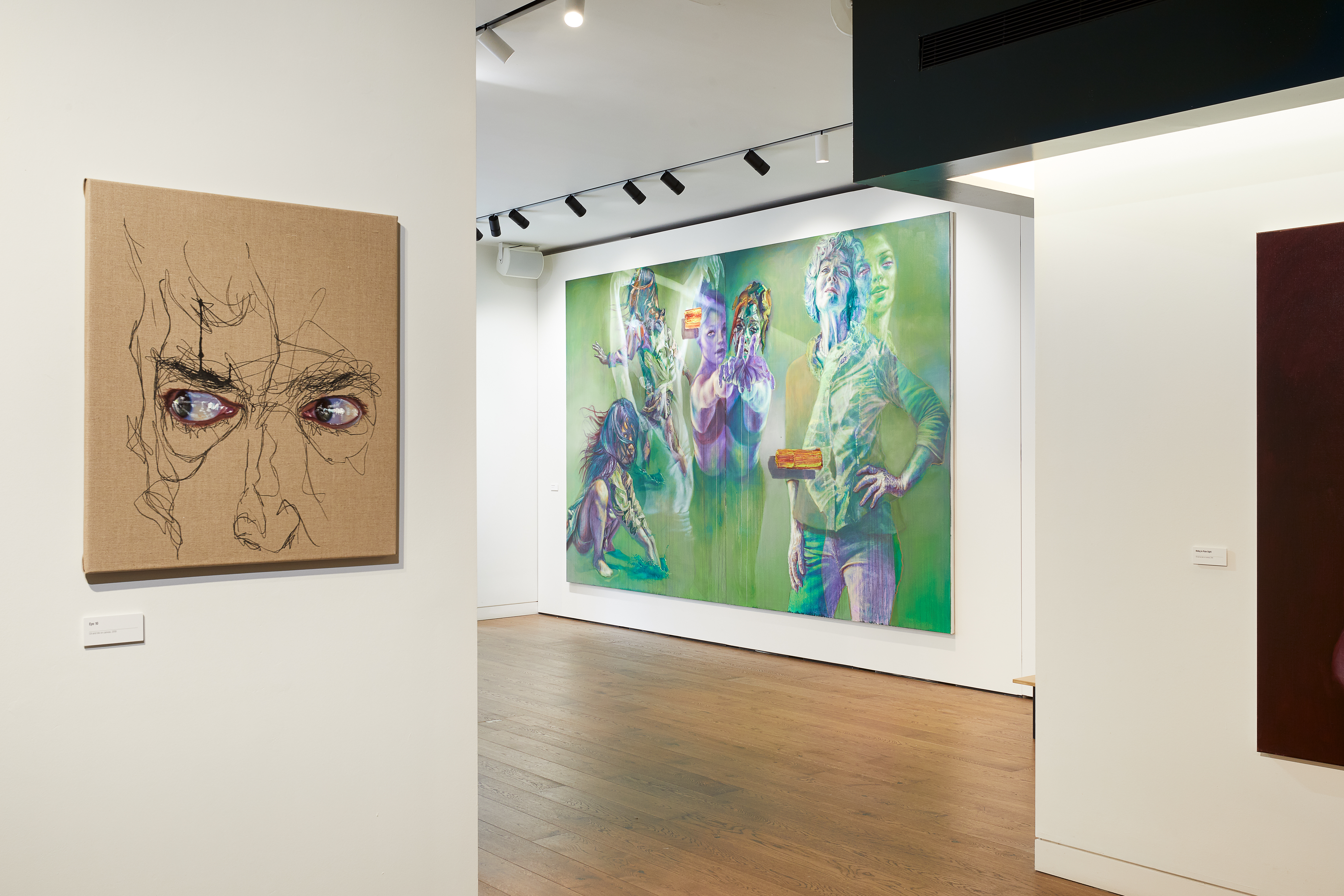Sara Shamma: Modern Slavery is a new body of work from celebrated Syrian artist Sara Shamma, currently on display at Bush House on the Strand.
Born in Damascus to a Syrian father and Lebanese mother, Shamma moved to London in 2016 and currently lives and works in Dulwich. In 2004, she won fourth place in the BP Portrait Award at the National Portrait Gallery and this year she has undertaken a residency at King’s College London, resulting in Sara Shamma: Modern Slavery, an exhibition of large-scale oil paintings and sketches.
During her residency, Shamma worked closely with Dr Siân Oram, senior lecturer in Women’s Health at the university’s Institute of Psychiatry, Psychology and Neuroscience (IoPPN). Together, the two women conducted a series of interviews with a number of survivors of human trafficking and modern slavery, primarily from African and Eastern European countries.
‘After the first interview with a survivor, I couldn’t sleep. I was imagining pictures, noises, smells,’ explains Shamma of the experience. ‘After meeting several women and hearing their stories, I went back to my studio and started working without any plans about the outcome of my work. I think the subconscious is the source of creativity, these paintings are my reaction to what I learned. They are not illustrations of what happened, but the feeling that these stories leave in you.’
Themes of death, conflict and humanity underpin Shamma’s work, which she depicts in a spontaneous and unplanned manner that taps into the subconscious. As such, her work has a visceral yet dreamlike quality characterised by bold colour and jarring paintbrush strokes. Her paintings are at once ethereal yet full of life.
‘Death equals life for me; I cannot see life without death,’ she says.
Shamma’s large, domineering oil paintings blend different narratives with overriding themes of motherhood and time.
‘I love to focus on the different ages of women,’ Shamma explains, in particular reference to her painting Four Ages of Women, the largest in the collection. ‘They [the women] don’t have a traditional sense of time; the past for them is always there because it’s a trauma – they often experience flashbacks, but they cannot imagine their future yet because they are survivors.’
The large-scale paintings are exhibited alongside smaller, abstract sketches of male faces with only the eyes painted in detail. These eyes, Shamma explains, are the kind that follow you around the room; ‘the eyes that hunt women.’
Sara Shamma: Modern Slavery opens just ahead of Frieze London and is on display until mid-November. During this time King’s College London will host a number of events and discussions exploring issues of modern slavery and the Syrian Civil War.
Dr Oram surmises, ‘modern slavery is a major human rights issue that causes significant and enduring harm. Through this project we have begun to understand the realities of women’s lives after exploitation. It explores what survival and recovery mean to them – how they think about themselves, others and the future. Our hope is that the work inspired new ways of depicting and thinking about the impact of modern slavery.’
Sara Shamma: Modern Slavery runs from 1 October – 22 November 2019. For more information, see kcl.ac.uk

